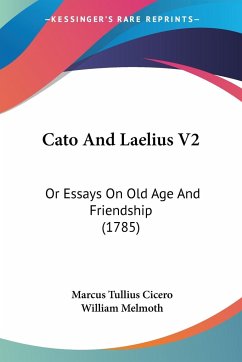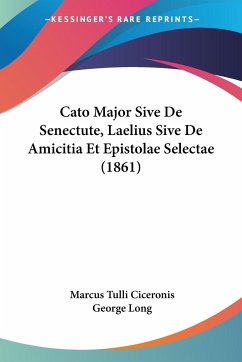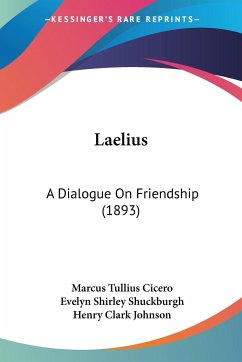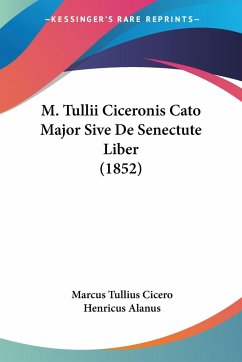Cato and Laelius V2: Or Essays on Old Age and Friendship is a book written by Marcus Tullius Cicero, a Roman philosopher and statesman, in 1785. The book consists of two essays, one on the topic of old age and the other on friendship. In the first essay, Cicero discusses the joys and challenges of growing old. He argues that old age should be viewed as a time of wisdom and experience rather than a time of decline and weakness. He provides examples of famous historical figures who achieved great things in their later years, such as Socrates and Pythagoras. Cicero also offers practical advice for living a fulfilling life in old age, including staying active, maintaining friendships, and pursuing intellectual interests.The second essay focuses on the importance of friendship in human life. Cicero argues that friendship is essential for happiness and that true friendship is based on mutual affection, trust, and respect. He provides examples of famous friendships from history, such as those between Scipio and Laelius, and between Damon and Pythias. Cicero also discusses the qualities that make a good friend, such as loyalty, honesty, and generosity.Overall, Cato and Laelius V2: Or Essays on Old Age and Friendship is a timeless work that offers wisdom and insight into two important aspects of human life. It is a must-read for anyone interested in philosophy, history, or personal development.In Two Volumes.This scarce antiquarian book is a facsimile reprint of the old original and may contain some imperfections such as library marks and notations. Because we believe this work is culturally important, we have made it available as part of our commitment for protecting, preserving, and promoting the world's literature in affordable, high quality, modern editions, that are true to their original work.
Hinweis: Dieser Artikel kann nur an eine deutsche Lieferadresse ausgeliefert werden.
Hinweis: Dieser Artikel kann nur an eine deutsche Lieferadresse ausgeliefert werden.








